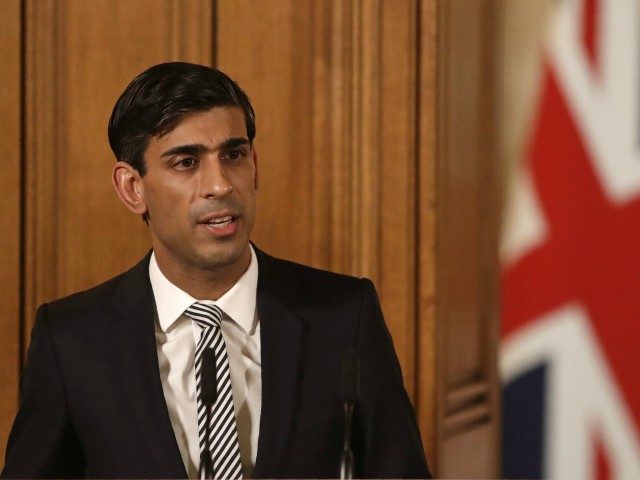Chancellor of the Exchequer Rishi Sunak has confirmed that Boris Johnson’s government is “committed” to the EU negotiations timeline, adding the reminder that “we’ve left the European Union”.
Addressing reporters from the podium inside Downing Street during the daily coronavirus briefing on Tuesday, Mr Sunak said: “We remain very committed to the timeline that we set out to conclude those by the end of this year.
“What I can say, David Frost our chief EU negotiator, on behalf of the prime minister, was in touch with his deputy counterpart last week and with his direct counterpart, Michel Barnier, this week to make sure that we have a timeline in place for this phase of the negotiations.
“This can obviously happen over video conferences; texts and legal agreements are also being exchanged between the EU and [the UK].
“I am confident that work can continue and hopefully reach a satisfactory conclusion, but ultimately we remain committed to the timeline we have set out.”
In-person negotiations were cancelled on March 12th due to the Chinese coronavirus pandemic; senior minister Michael Gove had warned on the 11th that even if talks are cancelled, the exit date will not be moved.
The chancellor’s remarks come as leftists, Europhiles, and European politicians have demanded the UK extend the transition period because of coronavirus. The Remain-backing British Civil Service even attempted to stoke Project Fear 3.0 last month by leaking claims to the press that the government was planning on prolonging the implementation period.
The UK officially left the European Union on January 31st, 2020, but remains in a transition period with the bloc until December 31st, 2020. During the transition period, also referred to as the implementation period, the UK will continue to abide by the EU’s rules and institutions, including on trade and free movement. The time is intended to allow London and Brussels to agree on a future trading relationship.
If parties cannot agree on a future deal by June, the government has said that it will use the remainder of the transition period to organise an orderly move onto World Trade Organization (WTO) relations with the bloc in time for the December deadline.
While the EU has said that the UK can extend the transition period for up to two years, the UK’s Brexit legislation prohibits delaying the exit further, with Prime Minister Boris Johnson categorically ruling out overturning that law last month.
Mr Frost and Mr Barnier are expected to hold a video conference on Wednesday to finalise plans for virtual negotiations in the coming weeks. The large-scale endeavour will involve up to 11 groups of cross-channel talks on issues including trade, fishing, and law enforcement.
“The aim of [Wednesday’s] call is to agree a calendar for next steps in order to move the negotiations forward,” a European Commission spokesman said, according to The Telegraph.
However, the spokesman raised the issue of granting an extension, saying: “The Withdrawal Agreement provides for the possibility to extend the transition period by up to one to two years. We have always said that we are ready to discuss such an extension.”
The Telegraph reports an EU source as saying Brussels could agree to a “flextension”, where an extension is granted but will be deactivated once a deal is reached. The EU’s source continued that they believe that the prime minister would only agree to such an extension at the last possible minute, saying: “This is a decision which will be left for Boris Johnson and it is too early for him to make such a call.”
Conservative Party Brexiteer Andrew Bridgen and the Brexit Party’s Nigel Farage both told the newspaper that there should not be an extension, which would likely include a further financial contribution beyond the current £39 billion divorce bill.
Speaking during a Facebook live broadcast on Tuesday, Mr Farage said that “We mustn’t accept that it’s going to be delayed.” He further warned that if the UK is caught up in a longer-lasting relationship with the EU beyond December, the country may find herself entangled in and liable for, what Mr Farage predicts to be, the bloc’s impending eurozone financial crisis.

COMMENTS
Please let us know if you're having issues with commenting.